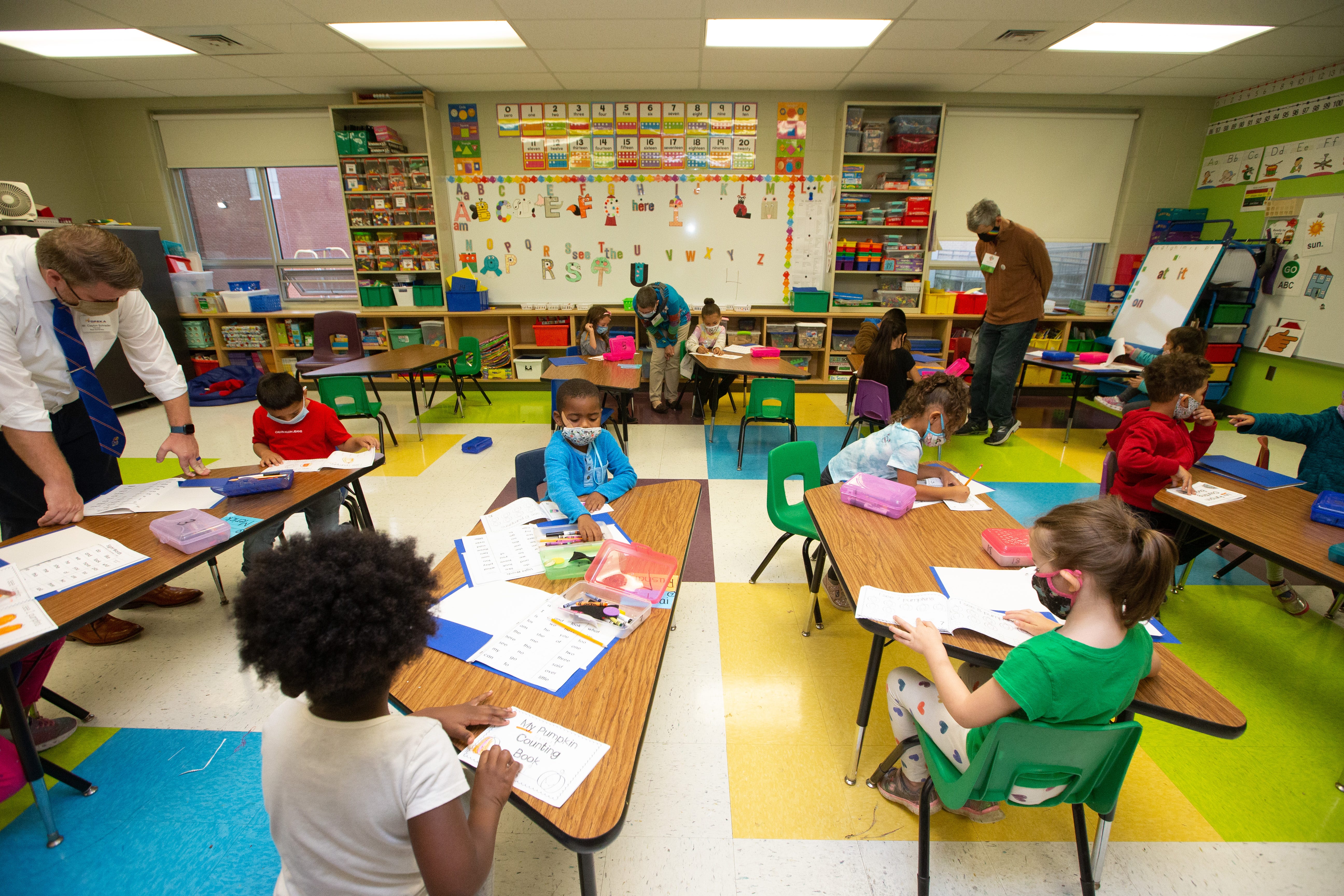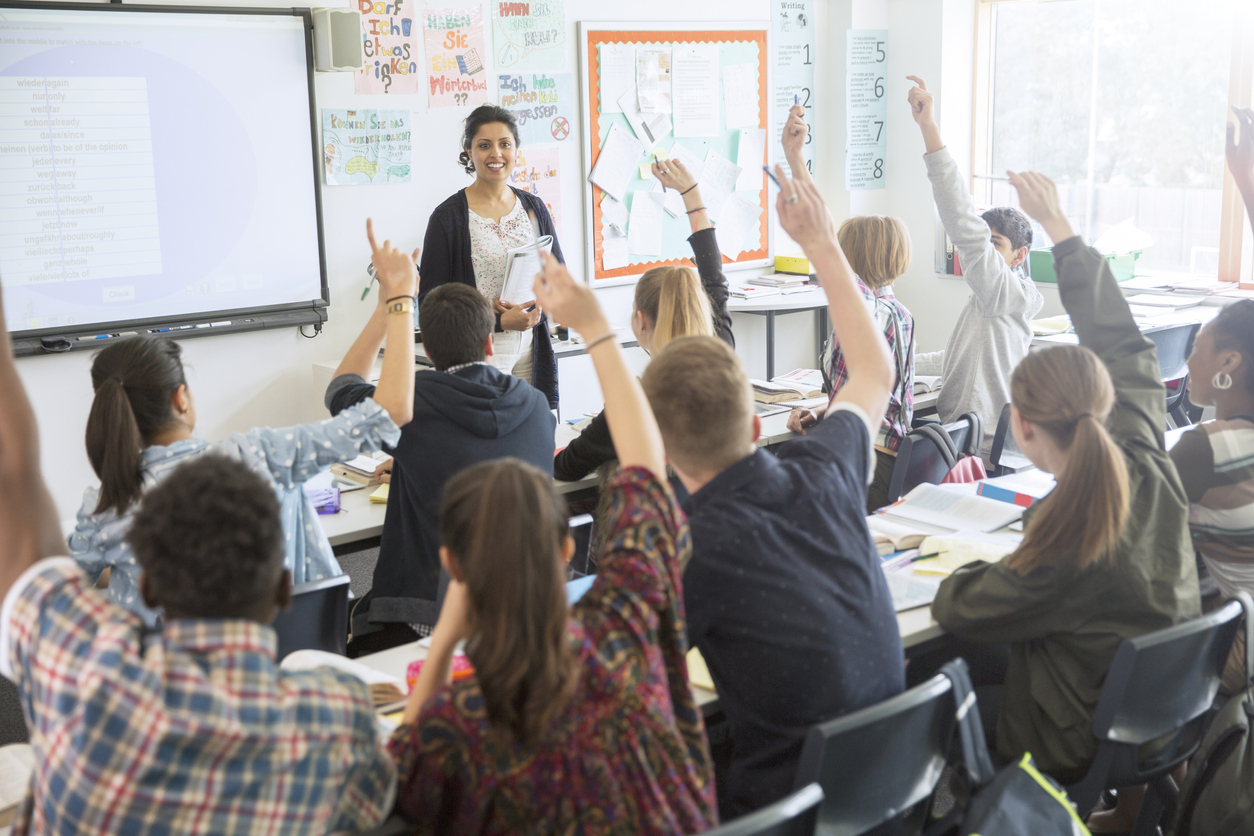Expert Tutors Offering Primary Science Tuition Singapore for All Grades
Expert Tutors Offering Primary Science Tuition Singapore for All Grades
Blog Article
Exploring the Different Training Approaches in Main Scientific Research Education Today
Inquiry-based learning, hands-on experiments, and the integration of technology are redefining exactly how instructors involve young minds. In addition, joint methods and set apart guideline are being used to cater to the diverse needs of students, boosting both involvement and understanding.
Inquiry-Based Understanding
Inquiry-Based Understanding (IBL) is an instructional technique that motivates students to explore clinical ideas through doubting, investigation, and hands-on experimentation. This approach stresses the function of students as energetic individuals in their knowing, promoting crucial reasoning and analytical skills. By involving with real-world concerns, students come to be interested and inspired, which enhances their understanding of clinical principles.
In IBL, teachers function as facilitators, guiding trainees as they navigate their questions rather than supplying info directly. This student-centered technique permits distinction, fitting numerous discovering paces and designs. Students establish skills in developing hypotheses, creating experiments, and evaluating information, which are important for clinical literacy.
In addition, IBL fosters cooperation among trainees, urging them to share findings and ideas. This cumulative query advertises social skills and a sense of area within the class. Moreover, the procedure of questions urges resilience, as pupils discover to welcome failure as a stepping rock toward understanding.
Hands-On Experiments
Hands-on experiments are a vital element of efficient scientific research education, complementing the principles of inquiry-based understanding. These experiments permit students to engage directly with scientific ideas, cultivating a much deeper understanding through experiential knowing. By controling products and observing end results, young students can grasp abstract theories in concrete methods.
Such activities advertise essential reasoning and problem-solving skills, as students hypothesize outcomes, conduct experiments, and evaluate results. This process motivates them to ask concerns, fine-tune their understanding, and create a clinical mindset. Additionally, hands-on experiments can be tailored to diverse learning styles, ensuring that all students have the opportunity to engage meaningfully with the content.
Moreover, hands-on experiments often encourage cooperation amongst peers, promoting teamwork and interaction abilities. Functioning in groups enables pupils to share concepts, talk about findings, and pick up from one an additional, which improves their overall instructional experience.
Integrating hands-on experiments into the key scientific research curriculum not only improves the discovering environment yet likewise cultivates a long-lasting interest in scientific research. By actively joining their education and learning, trainees are more most likely to establish an interest for scientific inquiry that prolongs beyond the class.

Technology Integration
Integrating innovation right into main scientific research education and learning has actually come to be significantly essential in fostering student interaction and improving discovering results. The usage of digital tools, such as interactive simulations, online labs, and educational software application, offers pupils with opportunities to check out clinical ideas in ingenious methods. These resources help with a deeper understanding of intricate subjects by enabling learners to imagine and manipulate variables that would be not practical in a traditional classroom setup.
In addition, modern technology assimilation motivates customized learning experiences. Pupils can proceed at their own pace, taking another look at tough ideas through multimedia sources, which satisfy different learning designs. This versatility not only sustains private growth yet likewise grows a feeling of autonomy in students.
Furthermore, technology works as a bridge to real-world science, attaching trainees with current research study and expert payments. Access to scientific journals and online data sources broadens trainees' perspectives on clinical inquiry and promotes important thinking abilities.
Collaborative Knowing
Joint knowing plays an essential function in key science education and learning by fostering synergy and communication skills amongst students. This technique encourages students to function together, share understanding, and involve in analytical, which boosts their understanding of clinical concepts. By participating in group tasks, students learn to verbalize their concepts, listen to diverse viewpoints, and negotiate options, every one of which are important abilities in both real-world and academic contexts.

Research study indicates that collective discovering can lead to enhanced inspiration and involvement in science topics, as pupils locate enjoyment in shared experiences (primary science tuition Singapore). In addition, this approach prepares students for future collective undertakings, outfitting them with the skills required for efficient synergy in college and expert atmospheres. Inevitably, embracing collaborative knowing in main scientific research education can considerably enhance the discovering experience and advertise a much deeper understanding of clinical questions
Differentiated Instruction

Differentiated direction can show up in various methods, such as differing the web content, processes, or products of discovering. As an example, teachers may make use of Discover More tiered assignments that offer differing degrees of intricacy, allowing trainees to function at their corresponding preparedness levels. Additionally, versatile organizing approaches can promote collaboration among students with different abilities, promoting peer learning.
Assessment plays a vital role in this method, as it educates guideline and assists teachers recognize each pupil's special needs. Developmental assessments, such as observations and quizzes, can lead educators in readjusting their approaches to boost discovering results. primary science tuition Singapore. Eventually, by executing distinguished instruction in primary science education and learning, teachers can cultivate a more efficient and fair understanding setting, equipping all students to reach their complete possibility in comprehending scientific sensations
Verdict
In summary, the diverse training techniques in primary science education and learning, including inquiry-based learning, hands-on experiments, modern technology combination, collaborative discovering, and differentiated guideline, collectively contribute to an extra effective understanding atmosphere. These methods advertise important thinking, analytic skills, and a much deeper comprehension of clinical ideas. By implementing these methods, educators can develop supportive and interesting classrooms that resolve the different needs of trainees, inevitably promoting a long-lasting rate of interest in science and improving scholastic accomplishment.
Inquiry-Based Learning (IBL) is an instructional approach that urges students to check out clinical concepts via questioning, examination, and hands-on trial and error.Collective discovering plays a vital function in key science education and learning by cultivating teamwork and communication abilities amongst students.Research suggests that joint understanding can lead to enhanced inspiration and involvement in scientific research subjects, as students discover pleasure in common experiences.In cultivating a comprehensive learning atmosphere, separated guideline arises as a key technique to fit the varied requirements and capacities of pupils in key scientific research education and learning. Inevitably, by implementing her response distinguished instruction in main science education, teachers can cultivate a much more efficient and fair discovering setting, encouraging all pupils to reach their complete capacity in recognizing scientific sensations.
Report this page